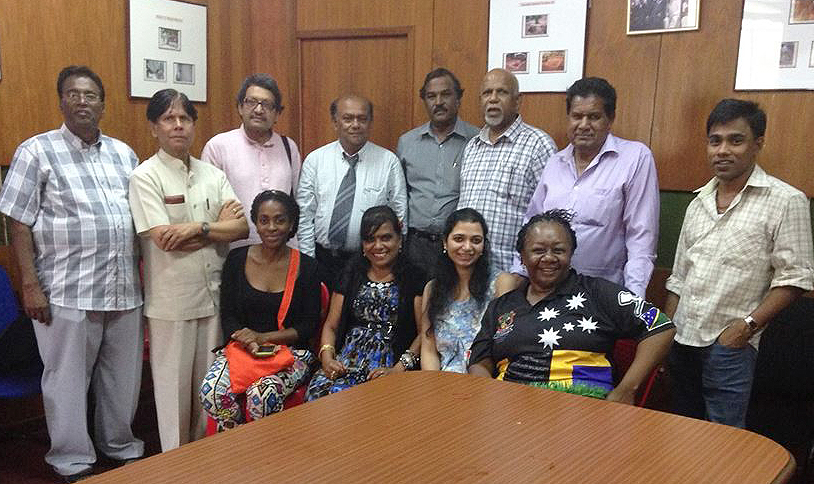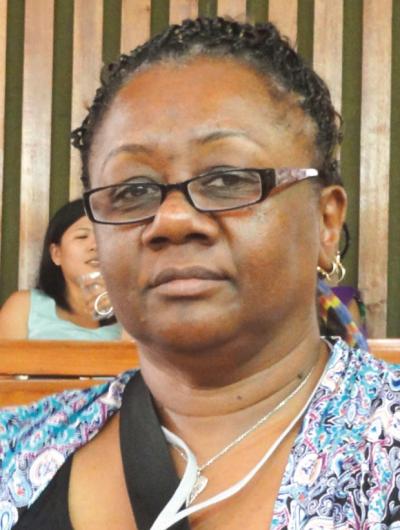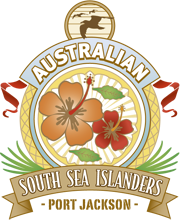
Conference delegates and organisers for the Port Louis, Mauritius international conference “Towards the establishment of the Indentured Labour Route” in acknowledgement of the 180th Anniversary of the first arrival of Indian indentured labour at Aapravasi Ghat on 2nd November 180 years ago.
Emelda Davis, President of the ASSI (Port Jackson) travelled to Mauritius to attend the commemoration ceremonies as a guest speaker and to present her paper “Australian South Sea Islanders: Indenture or Something Akin to Slavery?” at the 3-5 November that conference organised and attended by the Aapravasi Ghat Trust Fund and UNESCO delegates. This was the first international academic presentation by an Australian South Sea Islander on the history of ASSI.
Downloads:
Media release 31st October 2014
Australian South Sea Islanders:Indenture or Something Akin to Slavery?
Complete Mauritius Powerpoint Presentation (4.1 MB pdf file)
In recognition of the South Sea Islanders
Translated from the original article which can be found HERE.

Indentured labor or slavery, the system set up in the Pacific between 1863 and 1901 saw the displacement of 55,000 South Sea Islanders to Australia. The Australian South Sea Islanders Port Jackson (ASSI-PJ) campaigning for the Australian government to recognize the suffering of the people from over 80 Pacific islands.Emelda Davis, president of ASSI-PJ believes that recognition of the indentured labor system by UNESCO and the establishment of an international route is an important point in this process. “Coming to Mauritius is just The Beginning,” she had told the Mauritian at the International Conference on the road to the indenture, MGI, last month.
Your origins are Caribbean Vanuatuan…
Yes, my father is the Caribbean. My grandfather had been removed from the beach on the island of Tanna in Vanuatu, at the age of 12 years and taken to Australia.
Was it kidnapping?
Yes, he had been kidnapped like many others on this beach. Some speak of indentured labor, other slavery, but they have mostly been removed from their land and deprived of their liberty.
By whom?
The English, as part of their indentured labor system that began in 1847 in the Pacific. The first 122 were deported committed in Queensland in 1847. Between 1863 and 1901, 55,000 people from Vanuatu and the Solomon Islands have been removed, among which only 5% of women.
Today, Australians island in the South Seas, the South Sea Islanders suffer the same fate as the Aborigines descendants. We suffer the same inconvenience with an acute shortage of school programs and services. We even wonder if we are not worse off since they have a plan of action from the Australian government as we still advocate the right to recognition of our people. This is the main objective of the ASSI-PJ. We are the voice of the people from Vanuatu and the Solomon Islands selected to address the government of Australia. Our goal is to reconnect with our families and our traditions.
How will you achieve this?
This should not be so difficult as we are in the second generation. It’s not as if we were in fourth, fifth or sixth generation. We still have very close links with the Pacific. The Vanuatu government wants to build that relationship to see how we can contribute to the development of the country, be it economic, social or community.
What the establishment of the Road indentured help she to you?
It is an international platform that Maurice has done for the recognition of this system by UNESCO is very important. I am inspired by and agree to explore the possibilities for organizing a similar conference on indentured labor in the Pacific. Indians also came to work in Australia under this system. Unfortunately, in 1901, the government passed a law requiring the deportation of some communities in the context of the White Australian Policy, bringing the 10,000 South Sea Islanders to a thousand. They wanted to believe that there was anyone else in Australia, no indigenous peoples. It was devastating, but little by little, the community has rebuilt and for 20 years a group was formed to advocate for the recognition of Australian South Sea Islanders (ASSI).
You talk about school programs and a national program for recognition and return to your origins. Does it passes through the languages, for example?
From the perspective of the Aborigines, there is indeed a work of rehabilitation of more than 200 dialects. This is done with seniors and groups who still possess this knowledge. For ASSI not. A common language was created when they arrived in Australia the various Pacific islands, a “pidgin English”. But today there is a standardized language taught in Vanuatu Vanuatu schools.
Lost your native language?
I think it would first have to research to identify groups and their origins to find out which islands they come because we are scattered. When we arrived, we were all natives taken for the same mission, under the same law. We were all Thrown in as people of color. There was no difference.
What about your culture?
We were forced to assimilate for over 150 years. We also advocate for our cultural recognition. The government does not listen to us as we are not a national organization.
Yet there has been recognition of Aboriginal and forgiveness request of the Australian government for what they suffered?
That is true. For ASSI, there has been a call for recognition. In 1992 and in 1994, the Commonwealth recognized us, however there has been no action. During the last 20 years, people were more concerned about their families. In which case it was difficult to form a political body. Today we have a solid group and will start serious consultations with the Australian Government in January 2015. The first thing to do is look at the indentured in the Pacific.
And Route indentured is the ideal platform …
Actually, coming to Mauritius is just the beginning. The government does not listen to us unless we are united. It is a system that effects us all around the world. A strong relationship outside of Australia between the people effected by the indentured system, and recognition by UNESCO, certainly brings a major change in our struggle.
